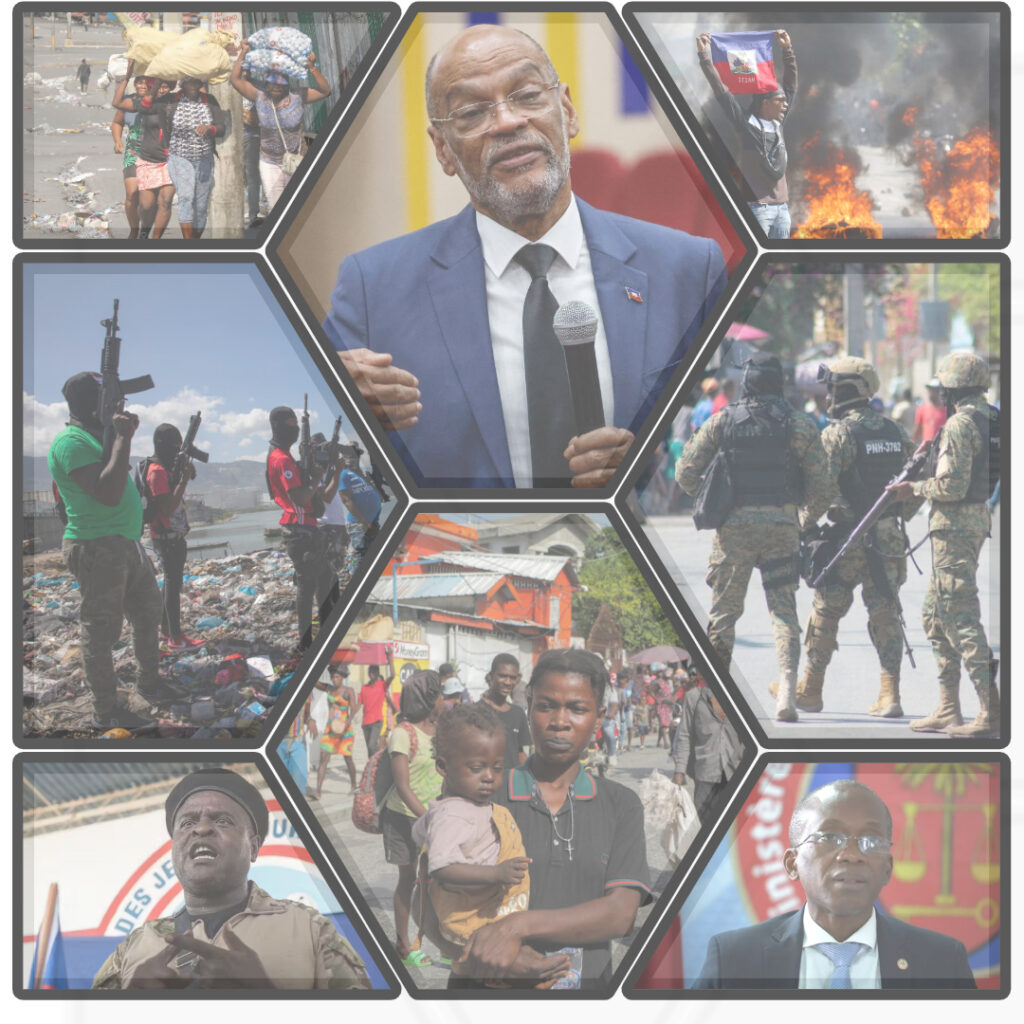
- Haiti is on the verge of collapse as thousands have fled the capital city of Port-au-Prince due to criminal gangs taking control of the area and weakening official security.
- Over the last few decades, powerful politicians have maintained a façade of legitimacy while using gangs to carry out their nefarious tasks.
- The International Rescue Committee reports that 90% of Haitians live in poverty and that about half of the nation’s population needs humanitarian aid.
Haiti, an island nation in the Caribbean, is on the verge of collapse following weeks of gang warfare and political turmoil. Thousands of people have fled the capital city of Port-au-Prince as a result of a group of criminal gangs taking control of the area and weakening official security. Ariel Henry, Haiti’s prime minister, announced his resignation on Monday. Henry is now stranded in Puerto Rico due to the country’s international airports closing due to unrest.
The latest wave of violence broke out on February 29 following Henry’s departure from the nation for a visit to Kenya, where he requested UN backing for efforts to fight Haiti’s long-standing gang issue. Armed groups orchestrated a large-scale prison escape while Henry was abroad. Jimmy Chérizier, often known as “Barbecue,” was a notorious police officer who turned gang leader. He became the public face of the movement by declaring that his federation, G9 Family and Allies, was collaborating with other gangs to get Henry to quit. The thieves then destroyed a police station and entered the main maritime port of the capital city, where stealing is now rife.
On March 3, a state of emergency was declared by Finance Minister Patrick Boisvert, who was assuming the role of prime minister while Henry was abroad. After two days, Chérizier intensified his demands for Henry’s resignation and threatened to declare civil war if the King refused to go. Residents have been compelled to escape the city or take cover in their homes due to gunfire and attacks. There are rumours of hospitals closing and a shortage of food, water, and medical supplies.
Why did Ariel Henry Resign?
Since Jovenel Moïse, the country’s former president, was assassinated in 2021, Henry, 74, has served as Haiti’s unelected prime minister. In a case that is still under investigation, Moïse’s widow, a former prime minister, and the former head of Haiti’s national police were indicted by a judge last month.
Last week, Henry attempted to enter Haiti again through the Dominican Republic. Still, Dominican officials prevented his plane from landing and blocked access to their airspace for aircraft travelling to and from Haiti. Henry took a plane to the US territory of Puerto Rico instead. Henry declared in a Monday video message that he would step down from his position as soon as a transitional presidential council was established, in response to growing pressure from both domestic and international sources.
Henry declared that his government would stay in power until a new prime minister was chosen. The council that selects Haiti’s next leader would be composed of a variety of political and business groups, he said.
What led to the violence?
Haiti has experienced political upheaval and economic turmoil for the past 20 years. The nation is the poorest in the Western Hemisphere, and widespread corruption in the government has become the norm. According to The Associated Press, powerful politicians have long maintained a façade of legitimacy while using gangs to carry out their nefarious tasks. Following Moïse’s murder, Haiti has not held elections in almost a decade, and the presidency is still unfilled. Life became much more difficult for Haitians when two huge earthquakes in 2010 and 2021 destroyed much of the nation’s infrastructure and severely damaged the economy, which has since been largely dominated by gangs.
What’s Next for Haiti?
During diplomatic meetings this week, a group of Caribbean countries backed a council of well-known Haitian citizens who will choose an interim leader and advocate for democratic elections.
The UN-backed Multinational Security Support Mission, which would see many member nations band together to support Haiti with financial and logistical aid, was also endorsed by US Secretary of State Antony Blinken. Chérizier, however, objected to the engagement of the international community, stating that the people of Haiti must pick their leader at an unplanned press conference. Why it matters to you
The International Rescue Committee (IRC) reports that 90% of Haitians live in poverty and that about half of the nation’s population needs humanitarian aid. According to the organisation, political unrest will make unmet humanitarian needs worse and increase food insecurity as a result of shocks to the economy and climate.
According to the IRC, gangs frequently set up checkpoints and demand payment in exchange for access to assistance, endangering even the hope of humanitarian aid arriving. As this is going on, Haiti’s neighbours are getting ready to deal with the surge in violence. According to Reuters, The Bahamas has recalled its embassy employees from Haiti, and the Dominican Republic—which shares the island of Hispaniola with Haiti—is strengthening a border fence.
References:
- https://www.latimes.com/world-nation/story/2021-07-12/haiti-gangs-complicate-recovery-effort-assassination
- https://www.africanews.com/2024/03/08/haitis-gang-violence-how-the-country-got-to-where-it-is-now/
